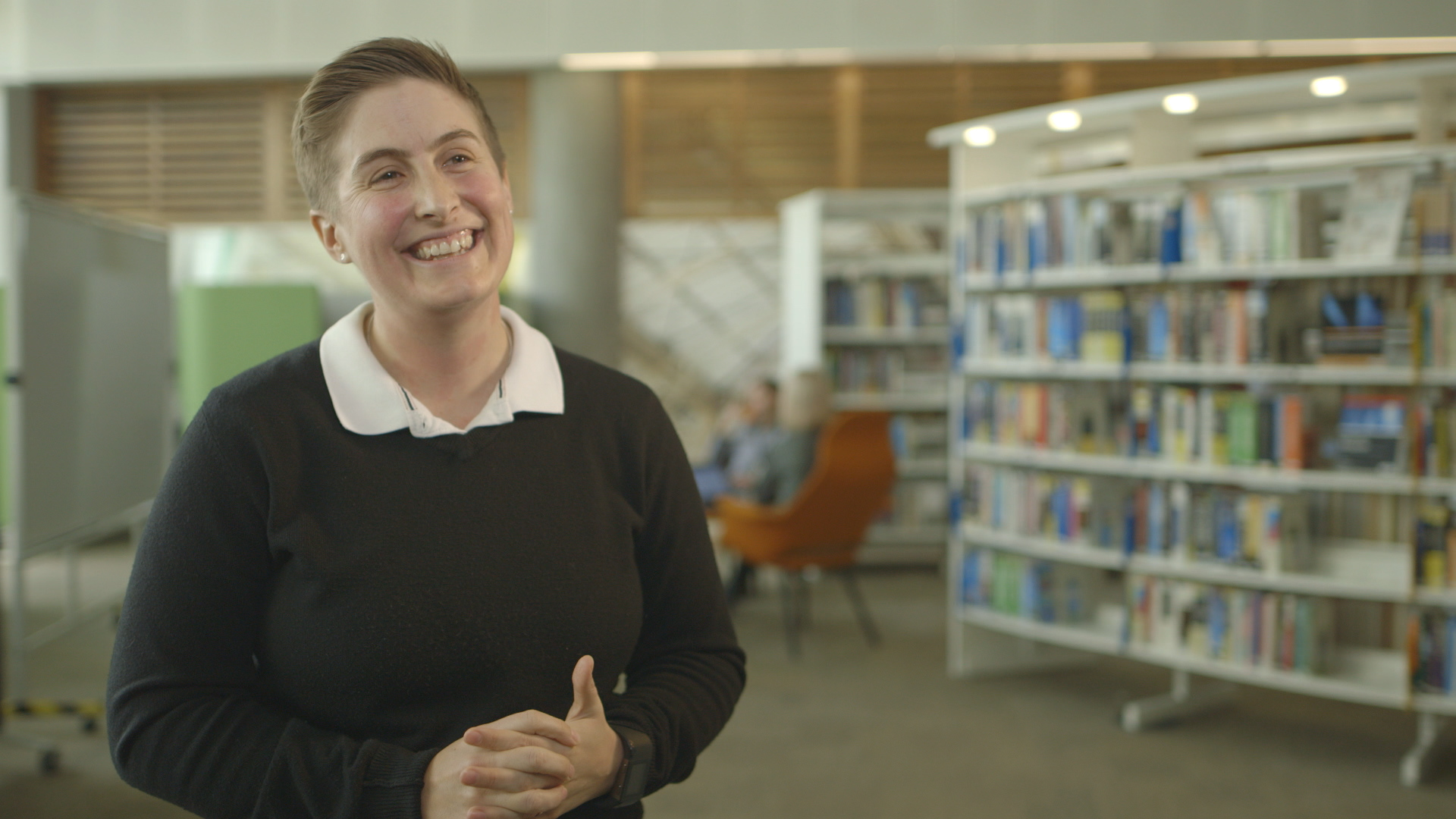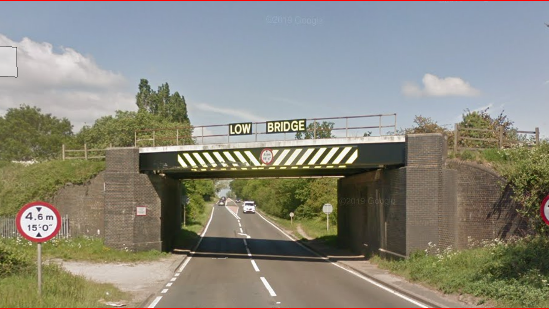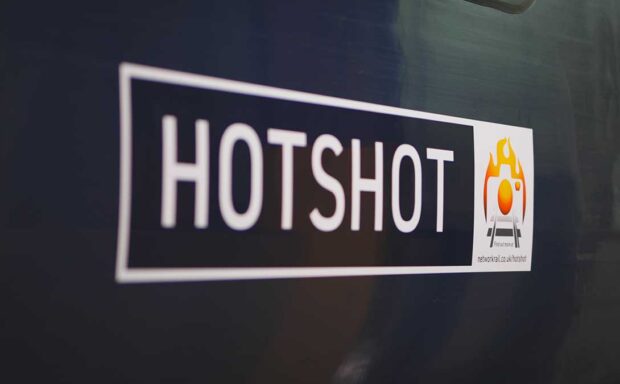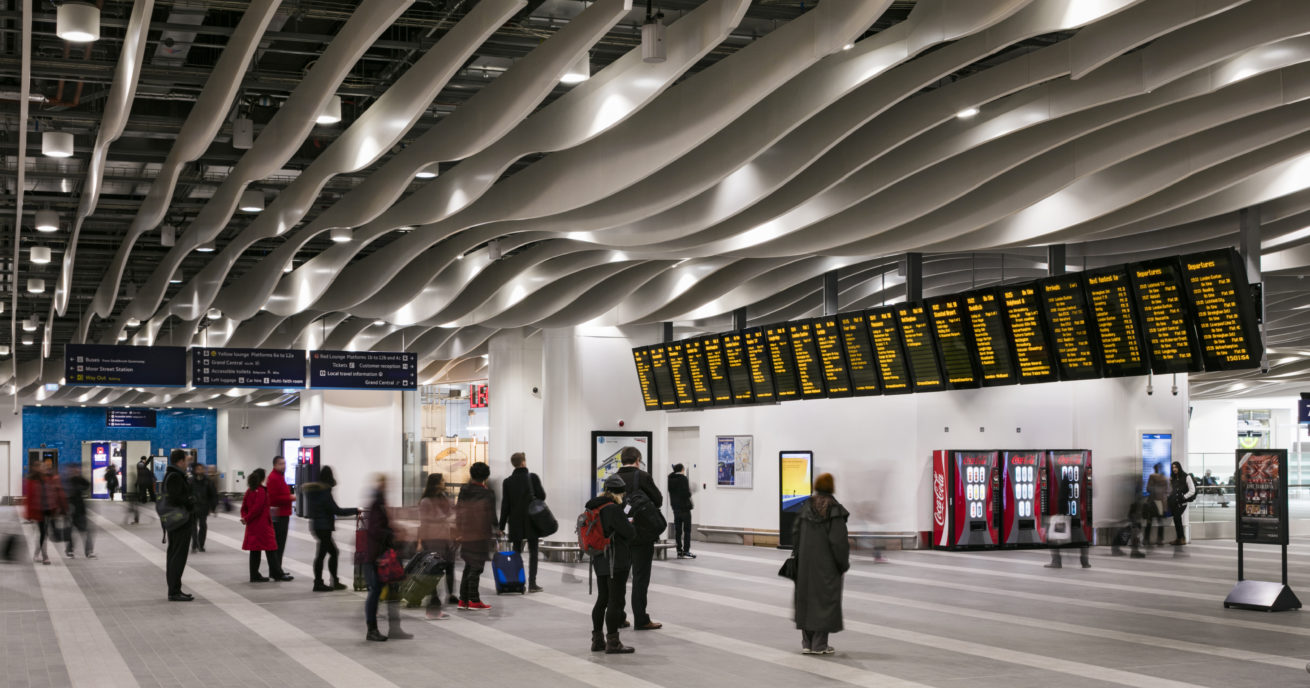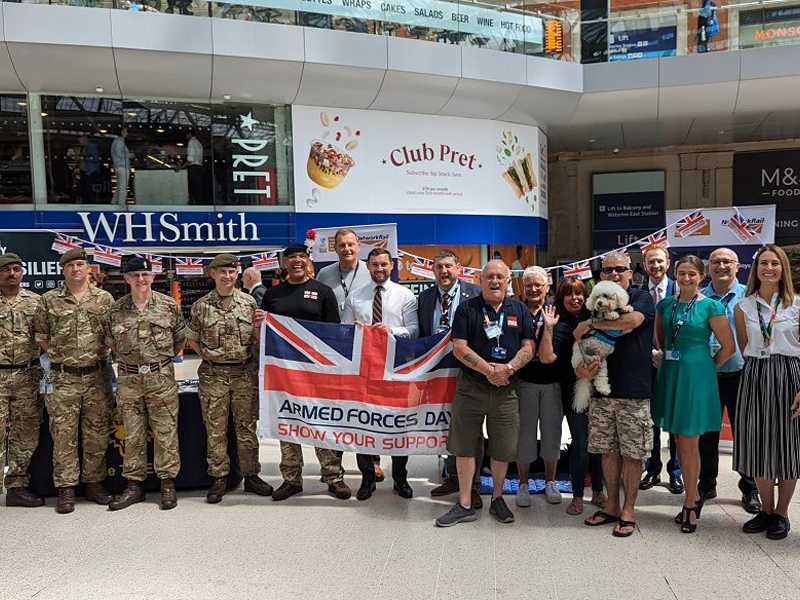Tara Scott turned her childhood love for building things outside into a career specialising in something we’ve got 20,000 miles of – track.
Tara, a track engineer and infrastructure director, regions, joined nine colleagues working in and supporting engineering to inspire girls and young women to explore dynamic and varied careers in engineering:
“Whatever your passion is, whatever you’re interested in, you’ll find a home on the railway.”
Tara tells us what she’s most excited about in engineering in the next 10 years and that legacy is important to her…
Why is now the best time to be an engineer?
The innovation… the investment we’ve got. Not only the innovation in research and development – you can think of these outside of the box ideas – but we’re embarking on building a new railway. HS2 is coming on board. Not only do you get to create your ideas, you’ll probably be able to see them put into track. If you join engineering now, you’ll get to see that innovation.
What were you like as a child?
I very much lived outside, either gardening, building something in the garden, just generally not being anywhere near inside as much as I could. Inquisitive is a nice word my mum and dad would use – why are things like this? What could we do differently?
What’s the first thing you ever built?
The first thing I ever took to pieces was in my dad’s workshop. I took part a radio to understand how it worked; I wasn’t so good at putting it back together again… The first thing I ever made was my dad let me loose on a lathe, so I made a lampshade holder for my mum.
How did you come to work on the railway?
I emigrated from Zimbabwe, that’s where I grew up, I was coming over to England to do something very different and had a bit of a gap before I could start… I got a part-time job on the railway and absolutely fell in love with it and quite quickly got offered a role within Network Rail.
I got an opportunity to join Network Rail as part of their foundation degree in engineering. You joined Network Rail but you went straight off to university to do a sandwich year – you went to university for seven months and then you came into industry for five months to put into practice what you learnt, then you went back to university to finish off the foundation degree.
Which project are you most proud of in your career to date?
I’m most proud of being the track maintenance engineer at Euston… I’m so proud of it because of the people I worked with… We made Euston a better place to work. It was leading engineering but it was more about the people.
What are you most looking forward to in engineering in the next 10 years?
The innovation – challenging what we have now and working with the rest of Europe and the universities within Europe and the UK… about challenging what we’ve always had and how we can make it different and how we can make it safer and more reliable for the customers. I’m really looking forward to how we’re going to challenge those boundaries.
We’ve got new and exciting opportunities with data, with all the innovation that universities are coming out with that are really making us think outside the box.
Why would you tell a young person STEM is exciting?
Education is developing as much as the rest of the industry – how do we teach people differently? You can put it into practical terms. If you find a career you love, it’s so easy to tie STEM subjects into that.
I’m passionate about making rounded individuals. Whereas STEM is really important to get that base knowledge, it’s those other subjects that make you a rounded person… It will make us much better and more diverse engineers in the future than just concentrating purely on STEM subjects.
What would you tell a young person who doesn’t think engineering is for them?
It may not be, but I think look at the railway as being a huge family where whatever your passion is, whatever you’re interested in, you’ll find a home on the railway. Engineering is exciting, it’s innovative, it’s pushing boundaries. There are so many different roles within the railway that your passion can come out… We need everyone.”
What did you want to be when you grew up?
I wanted to be a paramedic. I’ve always been fascinated with making things better, making people better… One, I’m petrified of blood and two, I have a huge phobia of needles… I found the next best thing, which was being an engineer. I can still help people, I just make the railway safer for them to travel.
What does the railway mean to you now?
It means everything… It’s an amazing opportunity and there are amazing things we’re doing… It keeps us going as a country. Every small little bit we can put to make something better, that’s really important to me. Making sure Mrs Jones gets from A to B on time and we don’t have any incidents so she doesn’t even think about her journey. I think that’s where we need to drive to be.
What advice would you give to a young person who’s finding their engineering career challenging?
Don’t give up. Try and find someone to talk to. There are lots of us within the business and within the industry who are more than happy to take time out to sit down, go through what you think are the challenges and help you find the solutions to or be able to create those opportunities that maybe you can go and experience a different part of the business.
I mentor graduates currently and it’s about finding what they love and what they’re good at and matching them into the part of the business they’ll flourish in.
What do you really want to achieve by the end of your career?
It’s a legacy thing… a legacy of mentoring a graduate and they become incredibly successful in their field and they turn around and go, ‘thanks Tara, you helped me on my journey’. It definitely involves people. Legacy for me is important.
